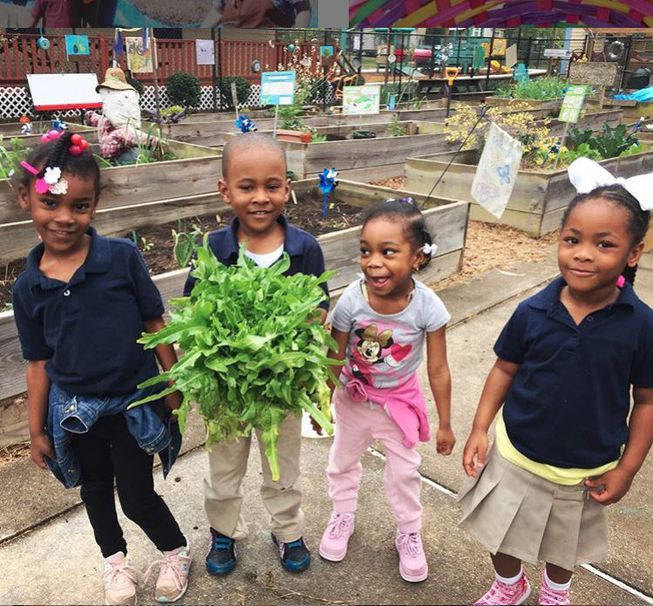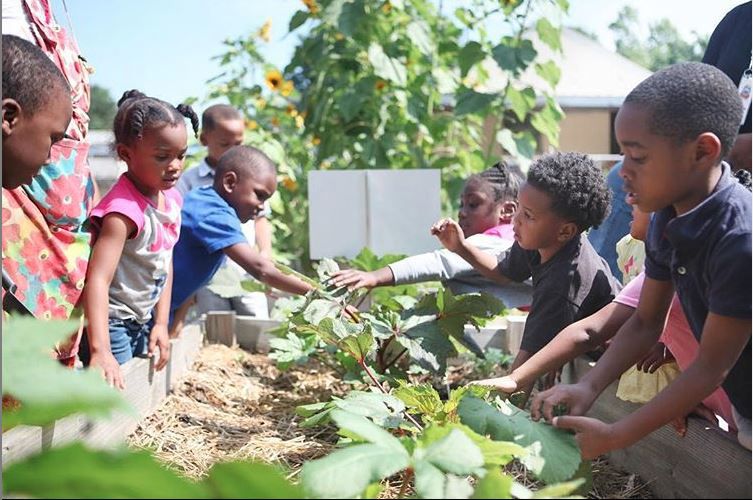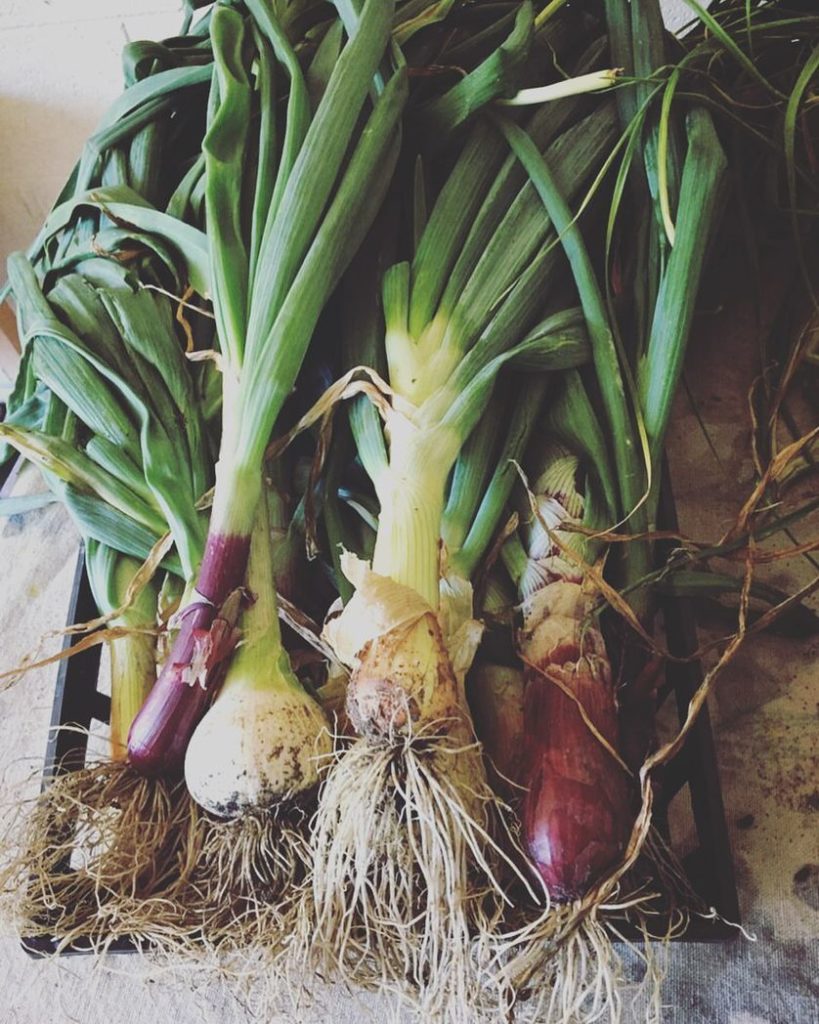Mother Nature Network - Sept 18, 2019 - MARY JO DILONARDO
‘It’s more than just selling 50 cent peppers. It’s connecting families and kids and food and the environment.’

At Little Ones Learning Center in Forest Park, Georgia, outside of Atlanta, the young students do typical preschool things. They work on spelling and draw interesting creations, but they also get to play and learn in an amazing garden.
The garden originally started as an outdoor learning environment for kids who needed to get out in nature for a little bit.
“It was a place for children who were having hard days,” Little Ones Executive Director Wande Okunoren-Meadows tells MNN. “I know I go stir crazy if I’m sitting indoors for a long period of time. ‘You’re having a hard time inside? Let’s go outside, play in the dirt and find some worms.'”
Eventually parents got involved and the garden truly bloomed. Now kids grow squash, beans, radishes, bell peppers, watermelons and all sorts of greens, while also learning how to compost. Then on the first and third Wednesday of the month, they set up a produce stand where they sell their homegrown fruits and vegetables to parents and people in the community. Farmers from the West Georgia Co-Op also bring produce to help supplement what’s offered at the small stand.
The school is located in parts of Clayton County, an area where many people can’t afford fresh produce, so they offer steep discounts (two-for-one) when customers use food stamps.
‘It’s like shutting down a kid’s lemonade stand’

The garden-to-farm-stand movement helps the kids learn about the environment and love their vegetables while also assisting the community.
“It’s more than just selling 50 cent peppers,” the school posted on Facebook. “It’s a wellness movement. It’s connecting families and kids and food and the environment.”
Okunoren-Meadows points out that the school isn’t located in a food desert; she says it’s more like a food swamp.
“What’s available is crap. It’s lots of tomatoes that look like they’re on steroids. The cucumbers are humongous. When a child is looking at one of our carrots, they say, ‘It’s so tiny, what’s wrong with it?'” she says.
“We have to tell them that what they’re seeing in the store isn’t normal. There’s the whole education piece and teaching them to be environmentally aware. There’s learning patience and being appreciative. It touches on so many things. It’s about getting healthy food into the community, but so much more.”
But in early August, the city shut down the farm stand, saying the residential area wasn’t zoned for selling produce.
“Anywhere you live, you’ve got to have rules and regulations,” Forest Park City Manager Angela Redding told The Atlanta Journal-Constitution. “Otherwise, you would just have whatever.”
School administrators were surprised when they were asked to close up shop.
“It’s like shutting down a kid’s lemonade stand,” Okunoren-Meadows says. “Nobody does this. It just shouldn’t happen.”
Hoping to change the rules

The kid farmers and their teachers have been forced to move their organic fruits and veggies inside, where the lower visibility has meant a big drop in sales.
Hoping this will be a temporary setback, the school administrators and parents have led a call to city officials to change the rules.
Okunoren-Meadows went to a City Council meeting in early September where she and more than two dozen supporters asked leaders to amend the law while speaking about the importance of the program.
So far, the city has only offered to allow the school to sell its produce in a different city-owned location. But it’s outside the school’s neighborhood, away from the community school leaders want to serve. The school also was offered the chance to pay $50 for a “special event” permit each time it opens the farm stand.
The city argues that if it changes the ordinance, there could be a farm stand on every corner. Okunoren-Meadows highly doubts that would happen but, if it did, that would be a good thing.
She says that the school only sells about $150 worth of produce each time the stand opens. After paying school employees for their time, the stand loses money selling 50-cent apples and 50-cent tomatoes.
“We don’t generate any income off it. It’s a labor of love,” she says.
She suggests that perhaps the city could make exemptions in the farm stand ordinance for educational facilities. Although no decision has been reached, she’s optimistic that the farm stand will be back up and running soon.
“According to the United Way, Clayton County has the lowest child well-being index out of all the metro Atlanta counties,” Okunoren-Meadows says. “So if we’re trying to move the needle and figure out ways to improve well-being, I’m not saying the farm stand is the only way to do it, but Little Ones is trying to be part of the solution.”
